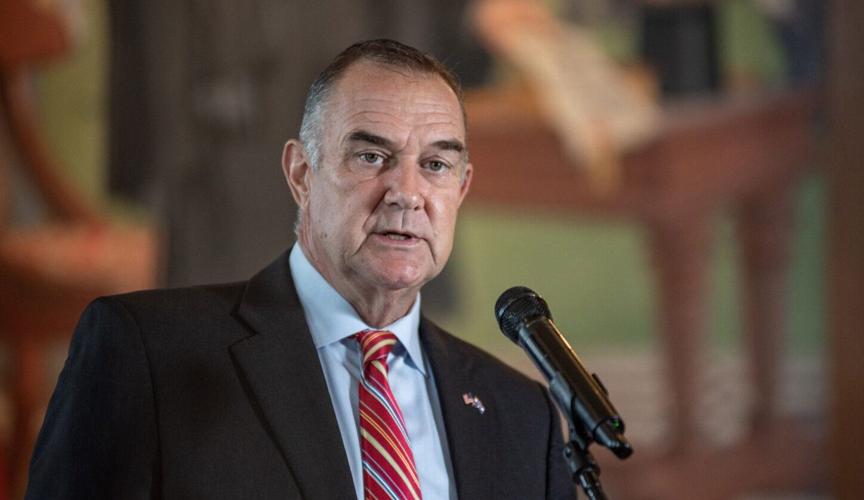
����ֱ�� Gov. Mike Kehoe calls a special session of the state legislature, answering questions from reporters about the legislation he wants revisited.
JEFFERSON CITY — The chief operating officer of an election technology firm will oversee the transition of the St. Louis Metropolitan Police Department to state control, Gov. Mike Kehoe announced Friday.
The governor said he was appointing Derek Winters, a St. Louis native and chief operating officer of , as transition director for the state takeover.
Winters has previously served on the St. Louis Board of Election Commissioners. According to a news release he has also served as chair of the board of St. Louis Makes, a nonprofit that promotes manufacturing.
“This transition team requires leadership rooted in accountability, professionalism, and a clear sense of purpose,” Kehoe said in a statement. “Derek brings all of that, and we are confident in his ability as a highly skilled operations professional to help build a strong foundation for the board and its long-term role in public safety.”
People are also reading…
Winters said in a statement “this is a pivotal moment” for the city and that “it is an honor to support the process of building a board that supports our men and women in uniform, reflects the City’s values, and is equipped to meet its responsibilities from the start.”

Winters
The announcement marks a major step forward for the state takeover, which Kehoe originally signed in March. He had planned to name a transition director by April 25 but that deadline came and went without an announcement.
The new law also requires the governor to appoint four members of the new six-member Board of Police Commissioners by June 24.
The law requires implementation of the state takeover to be complete by July 1, 2026. During implementation, the Board of Police Commissioners will assume control of the department. At that point, the law requires the department’s assets and debts to be transferred to the new board.
The mayor, who had been in charge of appointing the police chief, will hold one seat while five gubernatorial appointees will make up the rest of the board.
Four of the gubernatorial appointees will need to be city residents for at least two years before their appointment. The fifth gubernatorial appointee will be a nonvoting member of the board and could reside in St. Louis County if he or she owns and pays taxes on land in the city.
“I spoke to the governor’s office and have full confidence that this appointment doesn’t change the chief’s ability to lead the City of St. Louis’ police department this weekend and in the future,” Mayor Cara Spencer said in a statement. “While the governor and I disagree on the issue of local control, we share the common goal of a successful SLMPD, and I look forward to meeting with Mr. Winters in the near future.”
St. Louis Police Chief Robert Tracy said he supported the appointment and looked forward to meeting and working with Winters.
“Our priorities remain clear — maintaining public safety, supporting our officers, and continuing to serve the City of St. Louis,” Tracy said in a statement.
The takeover of the police department dominated much of the first half of this year’s legislative session in Jefferson City, with the newly minted governor pushing hard to return the police department to state control.
Kehoe overcame fierce opposition from then-Mayor Tishaura O. Jones, who failed to convince legislators to kill the bill despite it dying in past years.
Following a statewide campaign, ����ֱ��ans voted for local control of the city police department in 2012.
The department had been under state control dating to the Civil War, when pro-Confederate state officials wanted to contain the pro-Union city police department.
While the state of ����ֱ�� may be taking over St. Louis’ police department, it’s only taking on a portion of the legal costs city police will face in the future.
The new law limits the amount the state is allowed to pay for liability claims at $2 million per fiscal year between Kansas City and St. Louis — the only two departments under state control.
The new law will also force the city to spend a higher percentage of general revenue on the police department — from 23% next year to 25% beginning in 2028.













